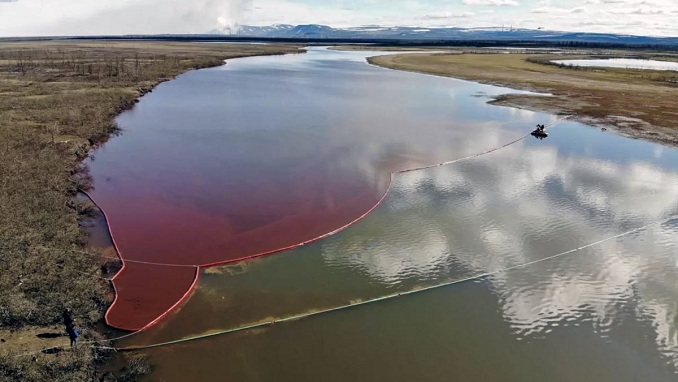Russia’s state development bank wants to start turning the world’s biggest energy exporter into a hub for green finance days after a 20,000-ton diesel spill in the nation’s far north, Energy Voice writes.
VEB.RF, which has been used in the past to help finance President Vladimir Putin’s infrastructure projects, plans to set up guidelines for green bonds by the end of the summer.
The lender aims to help companies raise about 300 billion rubles ($4.3 billion) for environmental projects, Deputy Chairman Alexei Miroshnichenko said in an interview from Moscow.
Global green bond issuance grew by nearly 50% to $271 billion in 2019 and the movement has been embraced by other emerging markets.
Russia’s bid follows years of foot-dragging from the Kremlin about climate change and a 20,000-ton diesel spill at a power plant owned by MMC Norilsk Nickel PJSC in the Arctic last week.
“In theory, it’s a tremendous opportunity for many Russian issuers to diversify their investor base,” said Sergey Dergachev, a money manager at Union Investment Privatfonds GmbH in Frankfurt. “But at the moment, especially for metals and mining companies, potential green bond issuance might be tougher to accomplish.”
Green finance should provide a channel for Russia to raise money to help with a much-needed transition away from a heavy dependence on fossil fuels.
But the leadership of the world’s fifth-biggest greenhouse-gas emitter has shown scant commitment to tackling climate change. A low-carbon development plan published in March envisages a small increase in emissions on current levels.
Investigators said that the unit of Nornickel had broken safety rules, resulting in the fuel spill, which threatens extinction for many fish, birds and mammals unique to Siberia’s Taimyr Peninsula.
Nornickel, which has pledged to fully fund a clean-up that could cost $146 million, has suggested the catastrophe may have been caused by climate change that led to permafrost melting.
President Vladimir Putin publicly scolded management for not upgrading the tank before it leaked and the accident could become a catalyst for pushing through long-stalled environmental regulations.
Russian energy companies Novatek and Gazprom are among companies that have assets in the Arctic that could be vulnerable to melting permafrost, but theirs aren’t as old as Nornickel’s, according to Ksenia Mishankina, director of emerging-market fixed income at Union Bancaire Privee in London.
The efforts to develop green bonds in Russia, which are also supported by the central bank and government, are part of “international efforts to save the planet, reduce greenhouse gas emissions and restore nature,” Miroshichenko said. It will allow companies to become “more sustainable”, he said.












